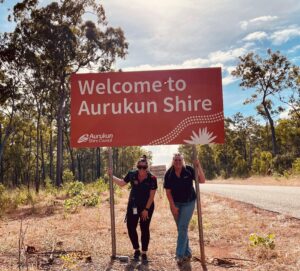Join us and you can make a real difference
in people’s lives – every day!
Do you want a job where no two days are the same?
Do you feel driven to do meaningful work where you know you’re making a difference?
A career with Community Corrections is all about ‘moments that matter’. Moments, each day, where you can see the positive change you’re creating – for you, for the people you work with, and for the community you’re keeping safe.
Queensland Corrective Services (QCS) is responsible for the critical role of community safety through the humane containment, management and rehabilitation of prisoners within the state’s system of secure correctional facilities and for the supervision of offenders within the community.
As part of the Community Corrections team, you work with people who have been convicted of a crime and are under a community-based supervision order. These orders are either imposed by the courts or by the Queensland Parole Board. You ensure they comply with the conditions of the order, while actively supporting and encouraging them on their road to rehabilitation.
Community Corrections is responsible for supervising approximately 18,000 individuals in the community. Approximately 3,300 of these individuals are First Nations people and 3,200 are female. As part of QCS’ commitment to reducing the overrepresentation of First Nations people in custody, QCS has permanent Community Corrections reporting offices in a number of remote Aboriginal and Torres Strait Islander communities including Mornington Island, Normanton, Doomadgee, Thursday Island, Weipa, Aurukun, Cooktown, Palm Island and Woorabinda.
Working for Community Corrections is an exciting, varied and extremely rewarding experience. Knowing you’re making a difference in the lives of offenders and their loved ones – reducing their likelihood to reoffend, to return to custody or pose harm to the community – gives you a strong sense of purpose and makes coming to work each day worthwhile.
We’re recruiting NOW!
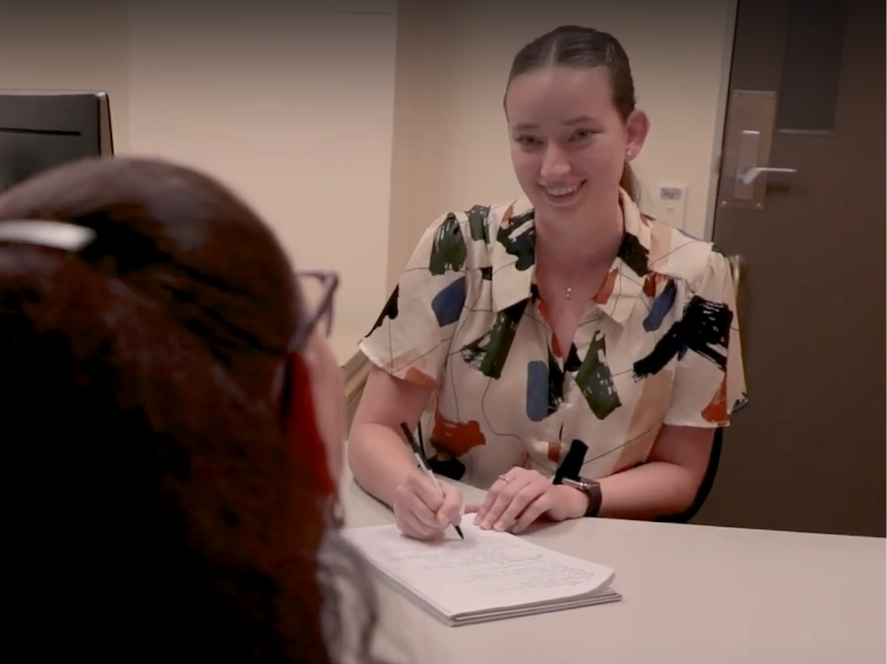 We’re looking for people to take on the roles of:
We’re looking for people to take on the roles of:
We have positions available all over Queensland!
You’ll receive comprehensive, best practice training before you commence in a district office, as well as throughout your time with QCS. You will also receive employee benefits, future career opportunities and a work environment that values diversity and inclusivity to best represent the community we serve.
Can’t decide if a Community Corrections role is right for you?
Try our Community Corrections careers quiz.
It only takes 2 minutes!
Want to know what it’s really like to be a case manager?
Hear from someone who’s doing it! Meet Elle, one of our case managers in our Northern region.
What does a case manager do?
Case managers play a vital role in protecting the community by working one-on-one with individuals under a supervision order.
You will:
- support supervised individuals to comply with the conditions of their order and support them to lead more productive, crime-free lives.
- help them understand what they need to do to complete their order, and the consequences of not complying with the requirements.
- encourage incremental behaviour changes during the course of their supervision through effective case management.
- help them identify their triggers that may lead to re-offending – such as alcohol and drug abuse, accommodation instability and loss of work – and you help them identify what they need to do to succeed.
- work closely with all kinds of people on probation and parole, often with complex needs.
This includes some who may not be fully ready to change at the beginning of your time with them.
What does a probation services officer do?
Probation services officers (or PSOs, as we call them!) play a vital role in protecting the safety of the community by working with people under community-based and reparation orders.
You will:
- support them to comply with their reporting requirements and conditions of their order.
- help them understand what’s required of them, and the consequences of not complying.
- encourage and coach them how to make incremental behaviour changes so they don’t re-offend and can live a crime-free life.
- supervise individuals completing community service.
- undertake court administration duties on behalf of your district office.
- build and maintain community networks and develop ongoing relationships with external stakeholders to establish sustainable community service projects.
The role encourages you to develop and exercise resilience, problem solving, critical thinking and empathy.
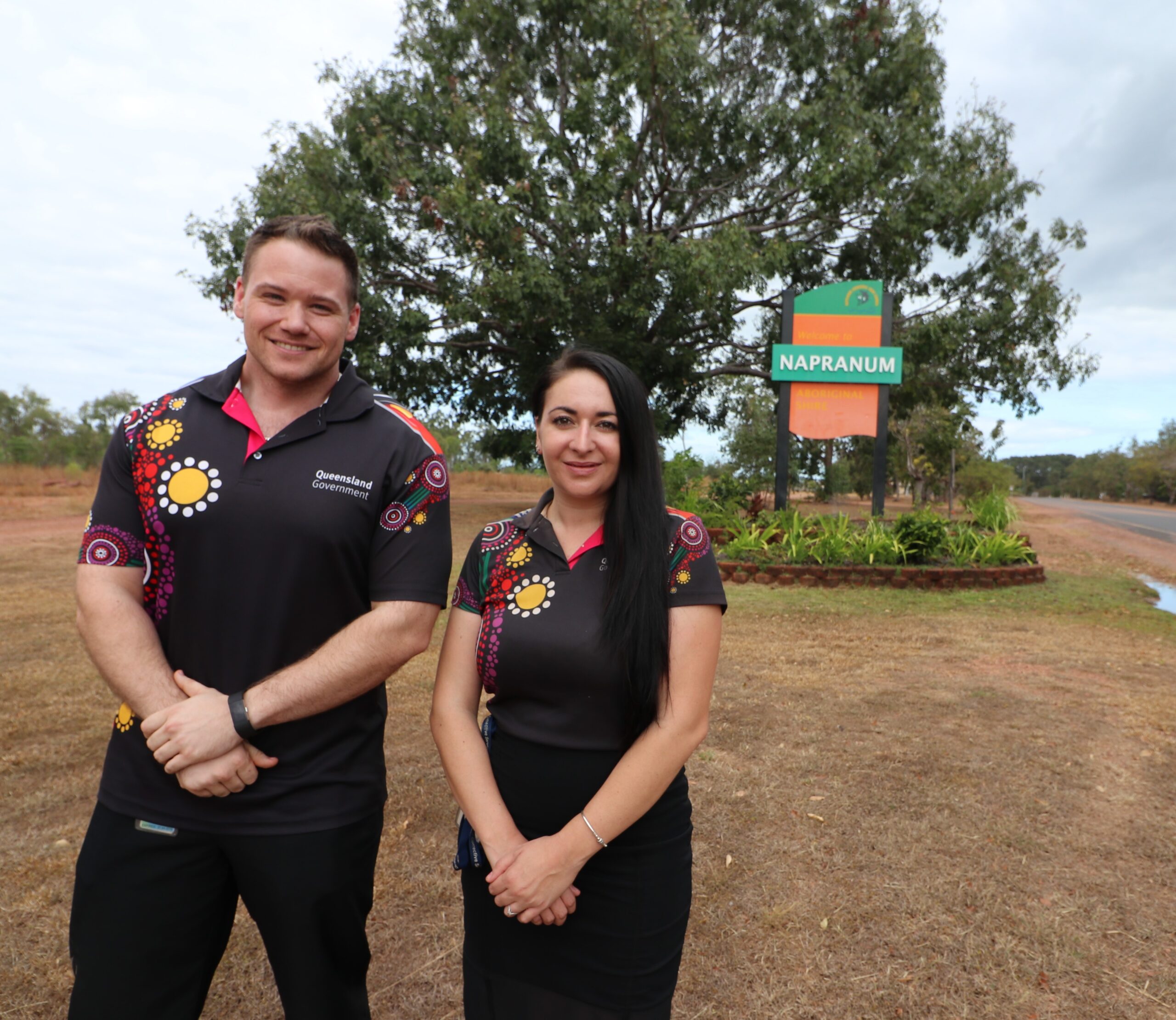
What I love about my Community Corrections job
Working with people and supporting them in making changes in their lives provides not only a difference in their lives, but the lives of the communities they reside in.
More testimonials from our officers
For areas not included in the RAIS, you may be eligible for reimbursement of relocation and transfer costs if you choose to relocate to take up a role in a regional or rural area, under Queensland Government’s Directive 11/11. Ask our Talent Acquisition Team for more information – ccrecruitment@corrections.qld.gov.au” button_text=”View the RAIS policy” button_link=”url:https%3A%2F%2Fcorrections.qld.gov.au%2Fwp-content%2Fuploads%2F2023%2F04%2FFinal-RAIS-Policy-v2.1-Mar2023.pdf|title:https%3A%2F%2Fcorrections.qld.gov.au%2Fwp-content%2Fuploads%2F2023%2F04%2FFinal-RAIS-Policy-v2.1-Mar2023.pdf|target:_blank|rel:nofollow” info_alignment=”ib3-info-left” ib3_border=”solid” ib3_border_width=”3″ button_color=”#004976″ button_text_color=”#ea7600″ title_color=”#004976″ desc_color=”#474747″ css_infobanner=”.vc_custom_1691387156761{padding-bottom: 50px !important;}” ib3_border_color=”#004976″ title_font_size=”desktop:30px;” desc_font_size=”desktop:15px;” ib3_background=”#f7f7f7″]
Do you have what it takes?
Community Corrections is a rewarding but also challenging environment in which to work. Many people under supervision have complex needs and risks, and frontline staff are faced with difficult and sensitive situations on a regular basis.
If you have – or you believe you can easily develop – the following abilities and skills, you may have just what it takes to be a brilliant Community Corrections officer!
Case Manager
-
- Relate to people with empathy and confidence
- Excellent communication and listening skills
- Work well in a team
- Be flexible, adaptable and professional
- Quickly adapt to a busy, complex environment
- Manage multiple, competing tasks
- Apply policy and procedural frameworks
- Build productive working relationships
- Display personal drive and integrity
- Able to conduct difficult conversations
- Strong problem solving and negotiation skills
- Embrace diversity
Probation Services Officer
-
- Relate to people with empathy and confidence
- Excellent communication and listening skills
- Strong planning and organising skills
- Be flexible, adaptable and professional
- Able to meet deadlines
- Work well independently and as part of a team
- Well-developed interpersonal skills
- Strong stakeholder engagement skills
- Manage sensitive and confidential information
- Able to conduct difficult conversations
- Good problem solving and negotiation skills
- Embrace diversity
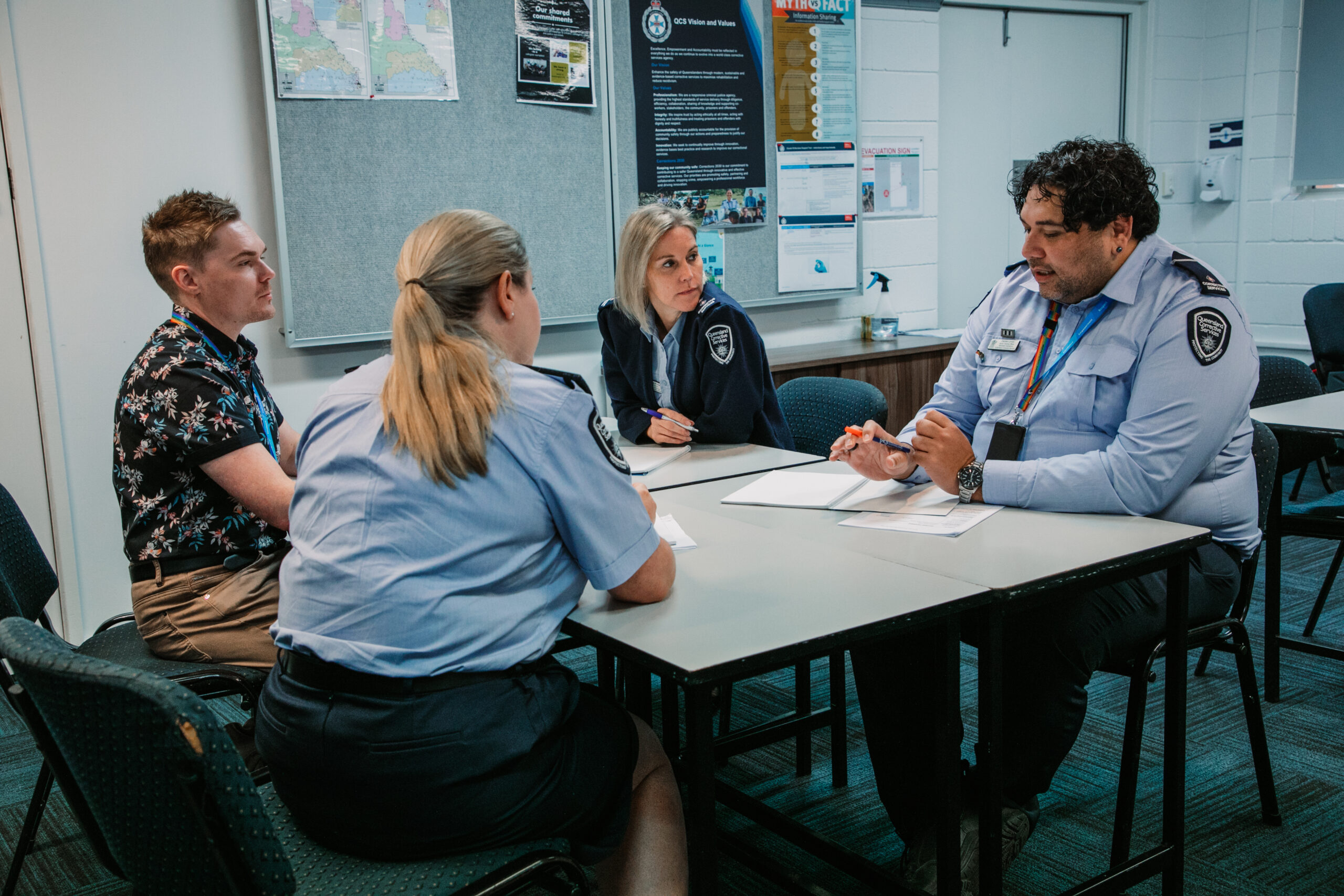
Secured an interview?

Ideal attributes of a case manager or PSO
- Resilience
- Sense of accountability
- Honesty
- Adaptability
- Perseverance
- Diligence
- Optimism
- Reliability
- Sincerity
You can submit your application here too!” button_text=”Apply Now” button_link=”url:https%3A%2F%2Fsmartjobs.qld.gov.au%2Fjobs%2FQLD-495559-23|target:_blank” button_text_color=”#ffffff” button_text_hover_color=”#b7b7b7″ desc_color=”#3f3f3f” ib3_background=”#8dc8e8″ title_font_size=”desktop:30px;”]
First Nations Australian applicants
Do you identify as Aboriginal or Torres Strait Islander?
 Did you know QCS has a First Nations Recruitment Strategy?
Did you know QCS has a First Nations Recruitment Strategy?
Based on this strategy, QCS uses culturally appropriate processes to ensure recruitment opportunities are equally accessible to Aboriginal and Torres Strait Islander applicants, they limit cultural bias and don’t disproportionally disadvantage First Nations Australians.
We value the contribution of First Nations Australians’ cultural perspectives and lived experiences to the delivery of a responsive service for Aboriginal and Torres Strait Islander offenders. We are committed to implementing attraction, recruitment and selection practices that are equally appropriate for First Nations Australians as for other applicants and foster a culturally diverse workforce.
Murridhagun Cultural Centre
Based at the Queensland Corrective Services Academy in Wacol Brisbane, Murridhagun is an acknowledgement to the Yuggera and Turrbal peoples who are the traditional custodians of the country where the Academy is located. The meaning of Murridhagun in Yuggera language is 'kangaroo ground'
Support from Murridhagun Cultural Centre
During the application process, applicants who identify as First Nations Australians may request the cultural support of an officer from our Murridhagun Cultural Centre (MCC). We recognise the challenges working for QCS may create for those of you with strong ties to the community. But we also acknowledge your commitment to improving the outcomes for First Nations Australians and we want to ensure you don’t feel alone at any point during your application process or through your career with QCS.
We will establish a relationship with you from the beginning if you would like this to happen. We will phone you at the time your application is submitted if you indicate through the initial application process that you would like us to contact you.
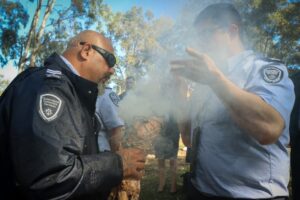
Who are we?
The Murridhagun Cultural Centre is an identified First Nations unit within Queensland Corrective Services (QCS).
Our team (mob) come from many different areas within Queensland and interstate. We want you to feel comfortable being you through your process of becoming an employee of QCS.
How can we help you?
Murridhagun’s door is always open. If you have any questions regarding QCS, or you want to tell us more about yourself, we’re here to yarn and provide support through your application process.
How to get in touch?
Send us an email to murridhagunculturalcentre@corrections.qld.gov.au
Community Corrections is divided into seven regions around Queensland. Each of these regions is led by a Regional Manager, and is made up of districts and reporting centres. There have 34 district offices and 133 reporting centres around the state.
From the bush to the coast and up to the tropical far north, you can nominate to work with Community Corrections right across this vast state of Queensland (subject to availability of positions).
As part of QCS’ commitment to reducing the overrepresentation of First Nations people in custody, QCS has permanent Community Corrections reporting offices in a number of remote Aboriginal and Torres Strait Islander communities, including Mornington Island, Normanton, Doomadgee, Thursday Island, Weipa, Aurukun, Cooktown, Palm Island and Woorabinda.
Please explore the profiles of our regions below to understand where our district offices and reporting centres are located and discover the unique characteristics and benefits of working in that region.

Far Northern Region
District office locations: Cairns, Innisfail, Mareeba, Thursday Island and Weipa
Learn more

Central Region
District office locations: Bundaberg, Emerald, Gladstone, Hervey Bay and Rockhampton
Learn more
North Coast Region
District office locations: Caboolture, Gympie, Maroochydore, Pine Rivers and Redcliffe
Learn more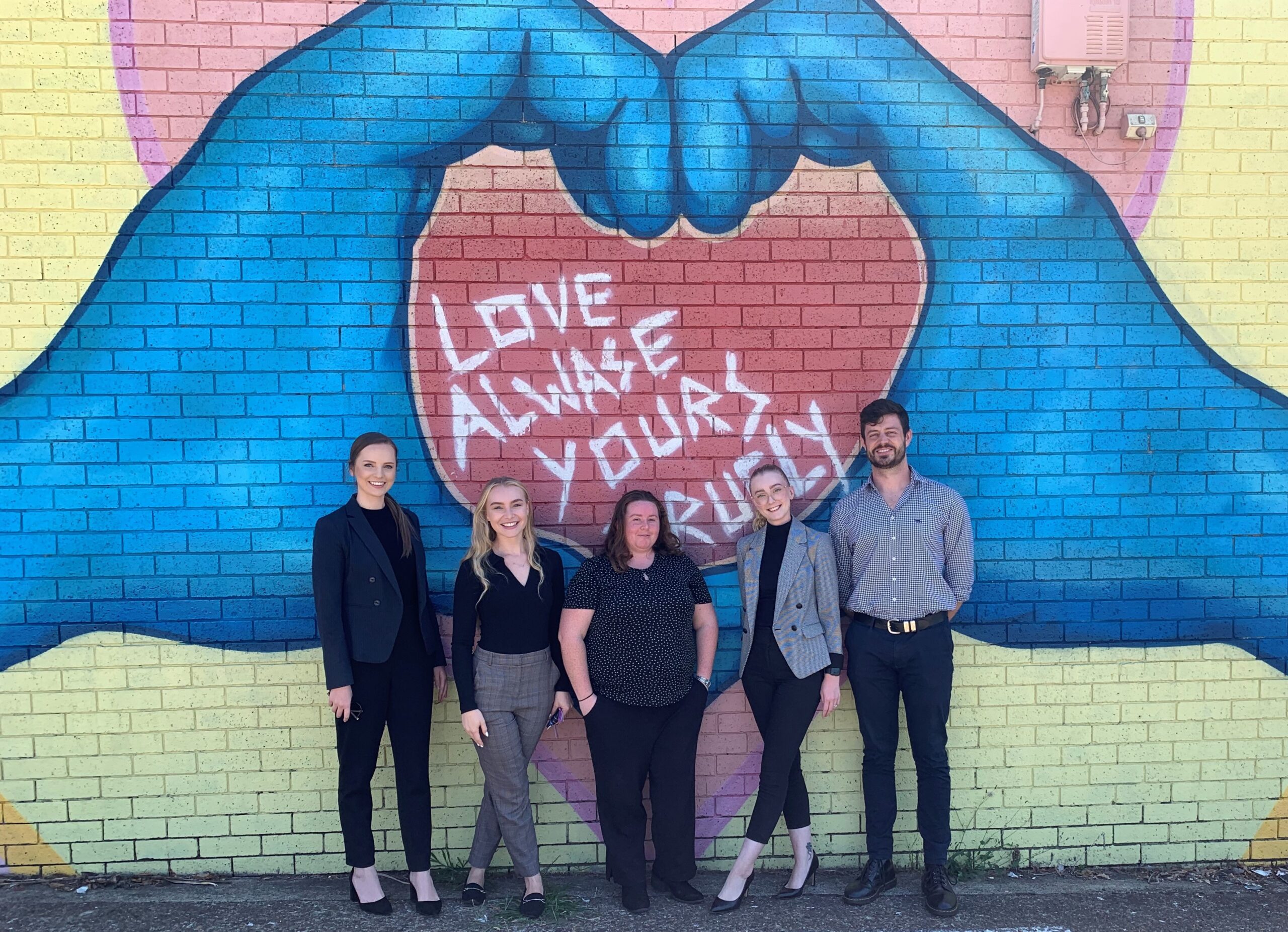
South Coast Region
District office locations: Beenleigh, Burleigh Heads, Logan City, Southport
Learn more
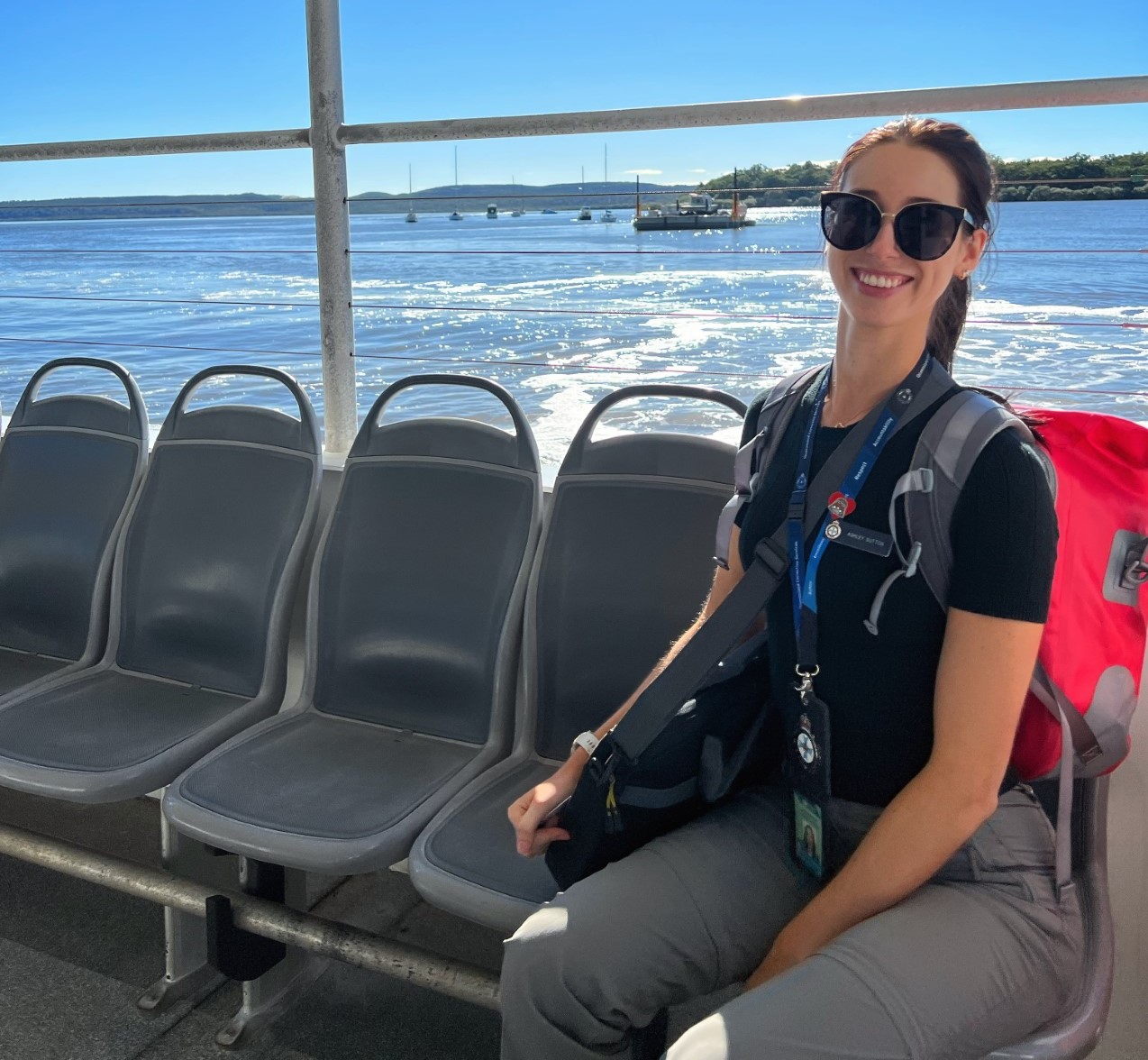
Brisbane Region
District office locations: Brisbane Central, Brisbane North, Brisbane South, Mt Gravatt, Redlands, Wynnum and the Queensland Drug & Alcohol Court
Learn moreYou can submit your application here too!” button_text=”Apply Now” button_link=”url:https%3A%2F%2Fsmartjobs.qld.gov.au%2Fjobs%2FQLD-495559-23|target:_blank” button_color=”#004976″ button_text_color=”#ffffff” title_color=”#004976″ desc_color=”#424242″ ib3_background=”#6cace4″ title_font_size=”desktop:30px;” desc_font_size=”desktop:16px;”]
You can submit your application here too!” button_text=”Apply Now” button_link=”url:https%3A%2F%2Fsmartjobs.qld.gov.au%2Fjobs%2FQLD-495489-23|target:_blank” button_color=”#ffffff” button_text_color=”#ea7600″ button_text_hover_color=”#004976″ title_color=”#ffffff” desc_color=”#ffffff” ib3_background=”#004976″ title_font_size=”desktop:30px;” desc_font_size=”desktop:16px;”]


